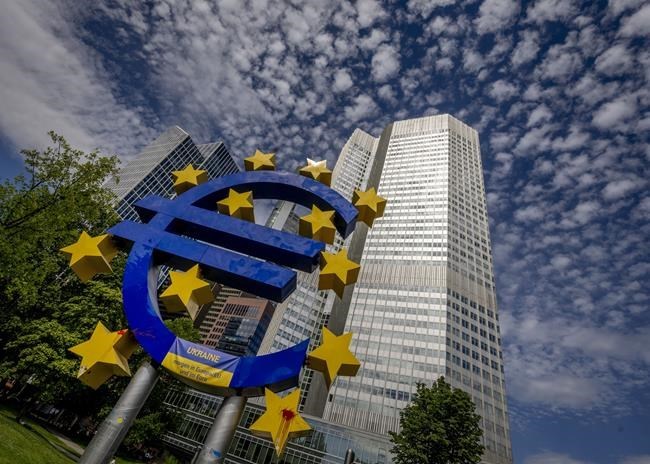BRUSSELS (AP) — is expected to wreak havoc with the European Union's economic recovery for the foreseeable future with lower annual growth and record-high inflation, the bloc's economic forecast showed Thursday.
The summer figures for the 19-nation eurozone set inflation to reach an average of 7.6% this year, a major increase from its earlier expectation of 6.1%. Last month, from a year earlier. Expectations for economic growth slid by 0.1 point to 2.6% for the year, a big drop from last year's expansion of 5.3%.
“Russia’s war against Ukraine continues to cast a long shadow over Europe and our economy," said EU Vice President Valdis Dombrovskis.
The war has led to that are driving a galloping inflation rate and weighing on economic growth and consumer confidence. Fears are rising that the energy crisis could get worse supplies or as European countries in preparation for winter.
The EU acknowledged that Russian President Vladimir Putin can keep the European economy off balance for months to come and make any forecast highly uncertain.
“Risks to the forecast for economic activity and inflation are heavily dependent on the evolution of the war and in particular its implications for gas supply to Europe,” an EU statement said.
Higher energy prices and record inflation are largely to blame for another tough economic sign: the after dropping to its lowest level in 20 years.
To make matters even worse, a recent surge in COVID-19 cases is causing new jitters.
“The possibility that the resurging pandemic in the EU brings renewed disruptions to the economy cannot be excluded,” the statement said.
Economy Commissioner Paolo Gentiloni said that “with the course of the war and the reliability of gas supplies unknown, this forecast is subject to high uncertainty and downside risks.”
The volatility though, could also tilt the other way, with a possibility that commodity and energy prices could decline at a faster pace than is now foreshadowed.
After the dark forecast for this year, eurozone inflation is set to rise 4% in 2023, still a huge increase over the spring forecast 2.7%.
All this stands in sharp contrast from a year ago, when the EU was bouncing back from the pandemic and was ready for prosperous times again.
The eurozone nations will have to contend with higher borrowing costs as the next week for the first time in 11 years to counter runaway price increases.
Energy poses a major challenge for the EU, which for years has , natural gas and coal to help power cars, factories, heating systems and electricity plants.
And even if the EU has imposed sanctions and issued plans to , it still remains .
European Commission chief Ursula von der Leyen said last week that the bloc needs to make emergency plans to prepare for a complete cutoff of Russian gas. If it materializes, it could have a major impact on the overall economy.
Raf Casert, The Associated Press



